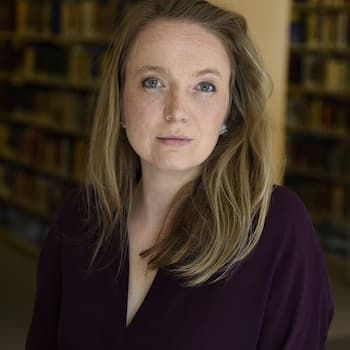 Caitlyn Bolton Caitlyn Bolton
Caitlyn Bolton Caitlyn Bolton
Caitlyn Bolton
Assistant Professor
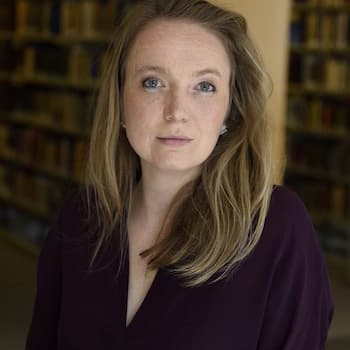
I'm excited about accompanying our students as they embark on their first time at COP, and working together to process our experience and make sense of what it means both for their future career paths.
Hometown: Pennington, New Jersey
School: Lynch School of Education and Human Development
Field of Study: Formative Education
Why did you get involved in COP 29?:
I attended COP28 in Dubai last year as a faculty participant, and am now returning as a faulty lead. My research looks at Islamic ethics and environmental change in East Africa, and for both last year and this year, COP is hosted by a Muslim-majority petrostate. I'm curious to see not only how the negotiations go, but also how the whole process is inflected by the particularities of the host.
 Grace Boyer Grace Boyer
Grace Boyer Grace Boyer
Grace Boyer
Undergraduate Student

COP29 has the potential to be an exciting milestone, especially as it continues to address critical issues like climate finance, biodiversity, and adaptation. Through an equity-centered lens, I look forward to discussions on enhancing climate resilience and deepening commitments to renewable energy.
Hometown: Pittsburgh, Pennsylvania
School: Morrissey College of Arts and Sciences
Field of Study: Environmental Geoscience and Economics
Graduation Year: 2027
Why did you get involved in COP 29?:
As a Pennsylvania resident, I am incredibly passionate about furthering the clean energy transition and wanted to see first-hand how diplomats discuss sustainability on a global scale and create compromises. Representing youth perspectives on climate policy, I hope to learn more about energy equity and our country's measures to ensure this effort is worldwide, especially in developing countries.
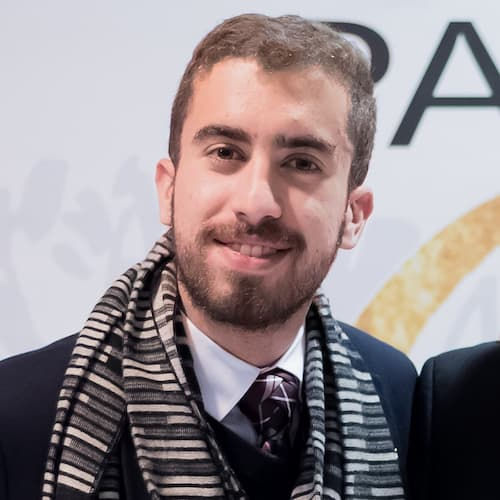 Gustavo Cardona e Almeida Gustavo Cardona e Almeida
Gustavo Cardona e Almeida Gustavo Cardona e Almeida
Gustavo Cardona e Almeida
Graduate Student
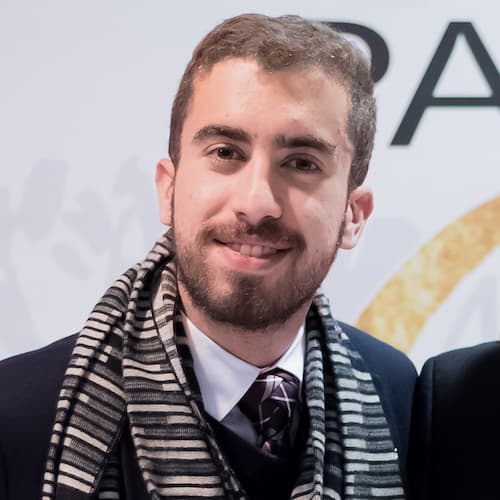
I'm most excited right now to know that I will have the opportunity to discuss climate challenges on a global level with leaders from different countries and understand what they are thinking regarding the solutions for the climate issues we are facing.
Hometown: Curitiba, Brazil
School: Woods School
Field of Study: MSc in Applied Economics
Graduation Year: 2024
Why did you get involved in COP 29?:
I decided to get involved in COP 29 to look for ways to improve my research abilities in Environmental Economics and especially to discuss disruptive topics at the level of public interest. In my view, climate change is one of the biggest challenges of my generation, demanding policies for a short time and significant resilience.
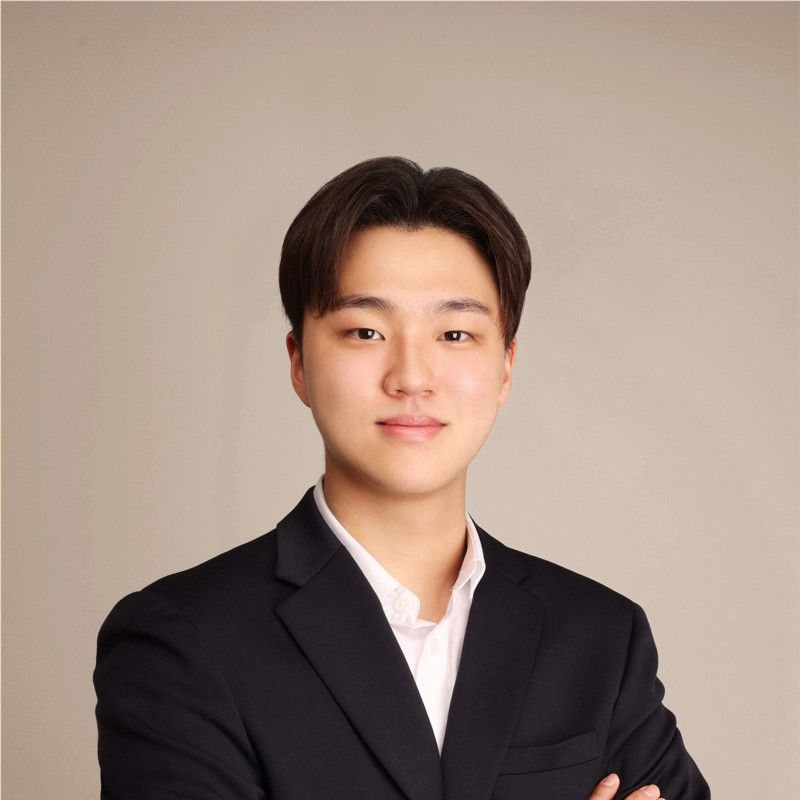 Junsoo Chung Junsoo Chung
Junsoo Chung Junsoo Chung
Junsoo Chung
Undergraduate Student
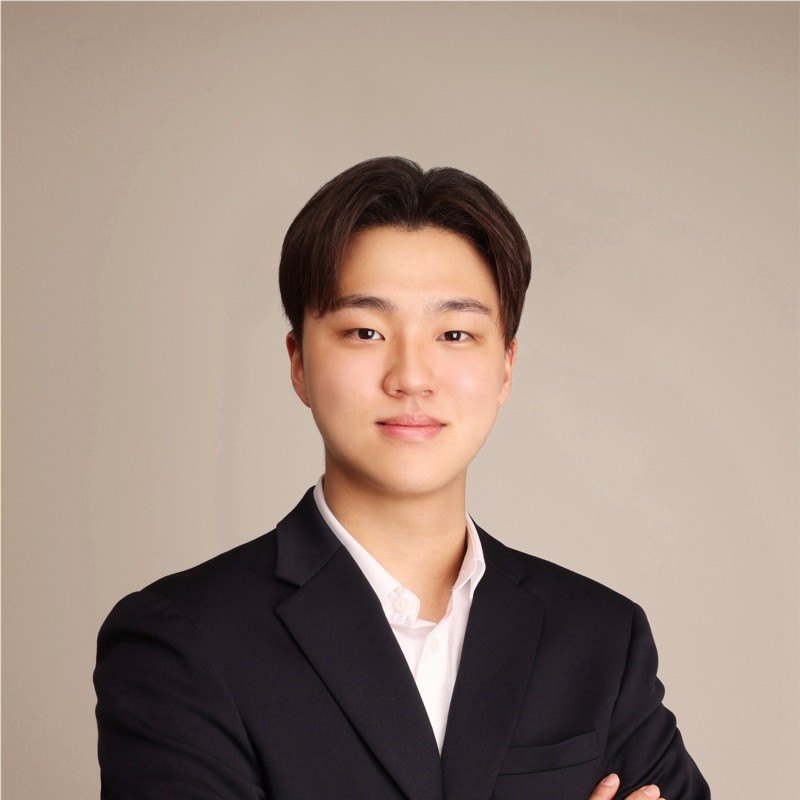
I’m most excited to explore how Asian countries will contribute to the discussions and solutions at COP29. Asia's capacity to balance rapid economic growth with the pressing need for climate resilience is pivotal, and I look forward to engaging with policymakers, businesses, and organizations to see how regional efforts can align with global climate objectives. Witnessing the innovative approaches and strategies that Asia brings to the table will not only enrich my understanding of sustainable development but also inspire fresh perspectives on how these insights can be applied to future climate initiatives.
Hometown: Seoul, South Korea
School: Morrissey College of Arts and Sciences
Field of Study: Economics and Environmental Studies
Graduation Year: 2026
Why did you get involved in COP 29?: COP29 aligns with my passion for leveraging economic policies to drive sustainable solutions. The conference offers a key opportunity to explore how capital can be directed toward meaningful climate action. I’m particularly interested in financial tools like green bonds and decarbonization funds, which can unlock resources while ensuring equity for communities most impacted by climate change. I believe effective climate finance must foster both mitigation and inclusive development, bridging public and private investment to create sustainable, fair systems.
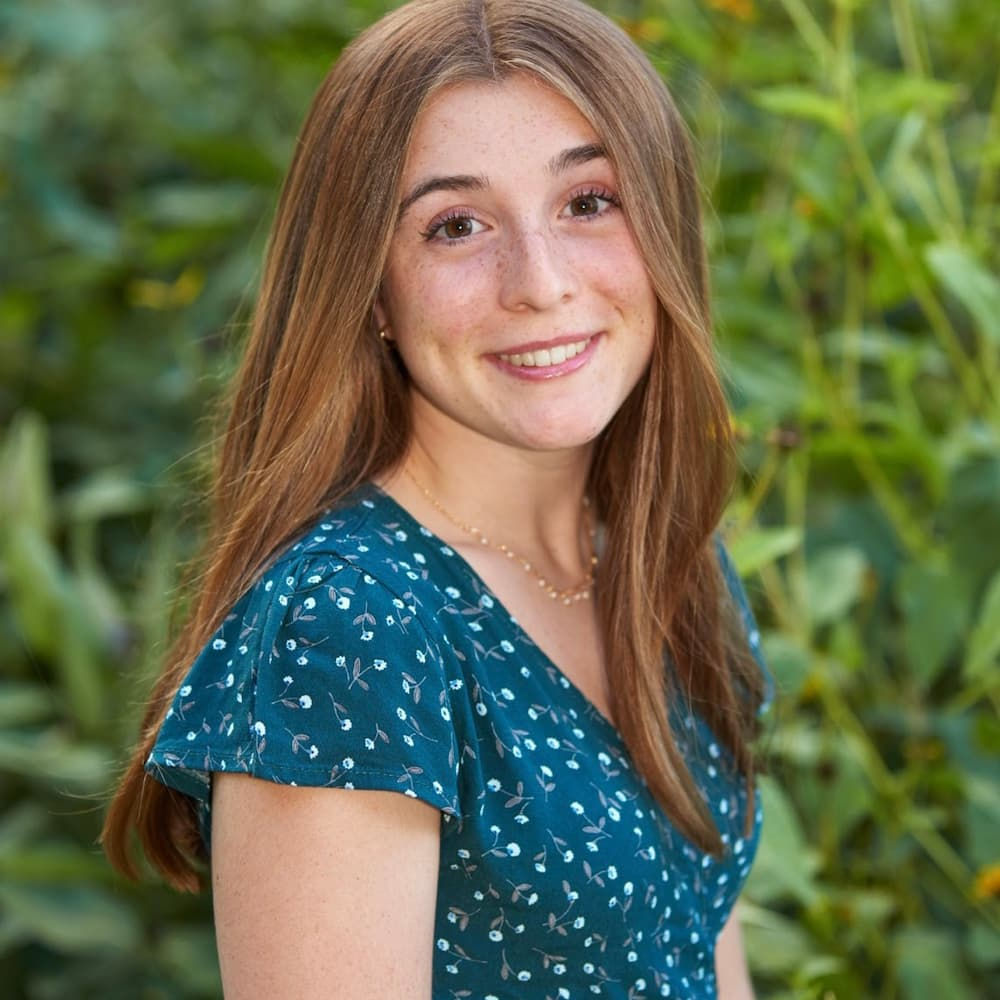 Molly Dugan Molly Dugan
Molly Dugan Molly Dugan
Molly Dugan
Undergraduate Student

I am most excited for the conversations I will have with fellow attendees. As much as I'm sure there is to learn from the various panels and negotiation rooms, I think that some of the most valuable lessons can come in unexpected moments, like chatting with a stranger.
Hometown: Wilmington, Massachusetts
School: Morrissey College of Arts and Sciences
Field of Study: Environmental Studies Major, Hispanic Studies Minor
Graduation Year: 2025
Why did you get involved in COP 29?:
I got involved with COP29 because of the way this conference fosters cross-cultural collaboration like no other. As someone passionate about global ethics, specifically through the lens of sustainability, I can't think of a better space to learn from, and I feel incredibly grateful to be a part of this year's BC delegation.
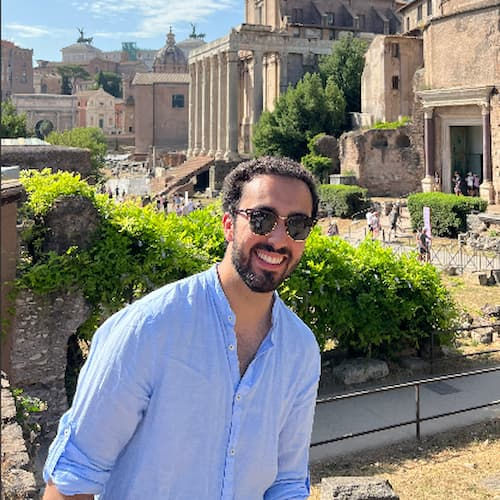 Ahmed Ferjani Ahmed Ferjani
Ahmed Ferjani Ahmed Ferjani
Ahmed Ferjani
Graduate Student
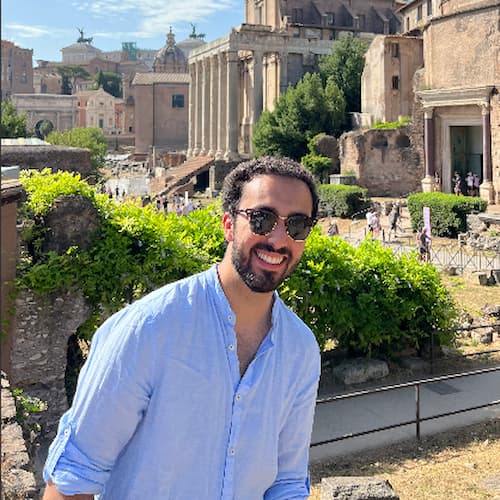
I'm particularly excited about the unique opportunity to engage in high-stakes negotiations that could shape the future of our planet. Being part of the conversations that determine global policies on climate change, renewable energy, and sustainability is an extraordinary chance to make a real impact. Additionally, as COP 29 is being termed the "financial COP," I'm eager to delve into the financial intricacies that will drive the implementation of climate policies.
My engineering background, combined with my MBA studies, has equipped me with a blend of technical problem-solving skills and strategic business acumen. This dual expertise is crucial in addressing climate challenges from both a technical and financial perspective. Furthermore, I'm enthusiastic about networking with like-minded individuals and experts from various fields—COP 29 is a melting pot of brilliant minds and innovative ideas. This is a unique platform where collaboration can lead to groundbreaking solutions for a sustainable future.
Hometown: Aurora, Colorado
School: Carroll school
Field of Study: MBA & MSF
Graduation Year: 2026
Why did you get involved in COP 29?:
I got involved in COP 29 because I believe our generation has the potential—and the responsibility—to address the critical challenges facing our planet. With my engineering background, I bring a unique perspective to the table. Engineering is all about problem-solving and innovation, which are essential in developing sustainable solutions for climate change. I want to leverage my skills to contribute to meaningful negotiations and actionable outcomes that secure a better future for all.
Additionally, COP 29 is particularly significant as it is being termed the “financial COP”. The financial aspects are pivotal in determining how resources are allocated and how commitments are financed to tackle climate change. I'm eager to delve into the financial intricacies that will drive the implementation of climate policies. Participating in COP 29 provides an invaluable opportunity to collaborate with global leaders, scientists, and activists who share a common goal: to create a sustainable world. This is more than just an event for me; it's a chance to make a tangible impact.
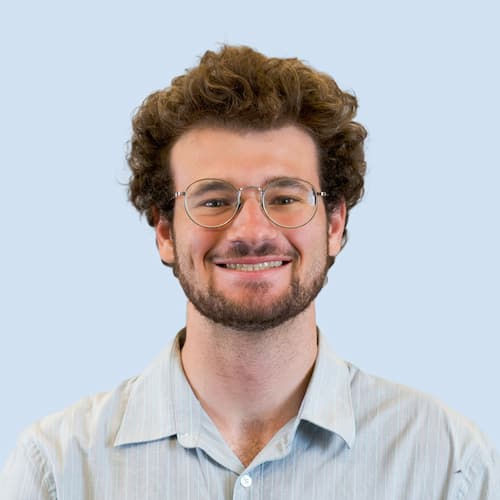 Tommy Frohlichstein Tommy Frohlichstein
Tommy Frohlichstein Tommy Frohlichstein
Tommy Frohlichstein
Undergraduate Student
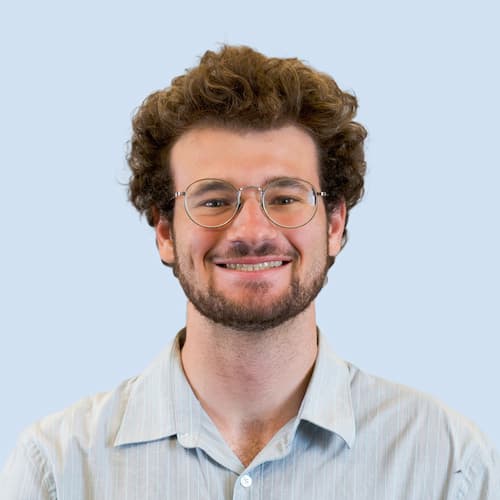
I am most excited to get the chance to be in a room full of thousands of people who are committed to solving the climate crisis and actively working together to spread new information and opportunities and push the negotiators to put together concrete and effective deals. A lot of marginalized populations around the world, including in the US, are facing the greatest threats to climate change. I cannot wait to talk with delegates from these nations to learn more about the plights of their people, make connections, and learn new information every day. Additionally, Baku is a beautiful city, and during my time off, I hope to explore cultural areas with other BC delegates.
Hometown: Wakefield, Massachusetts
School: Morrissey College of Arts and Sciences
Field of Study: Environmental Studies
Graduation Year: 2025
Why did you get involved in COP 29?:
As an Environmental Studies major who concentrates on climate change, getting a chance to represent BC at the largest international climate change conference is an invaluable experience. For most students and faculty at BC, climate change is not one of their top concerns; it is absolutely the most pressing issue the world faces. As a delegate from BC, part of our job is to inform other students about what COP is, how we are getting involved, and why it's important that they start paying attention to international climate change negotiations (even if they are 10,000 miles away).
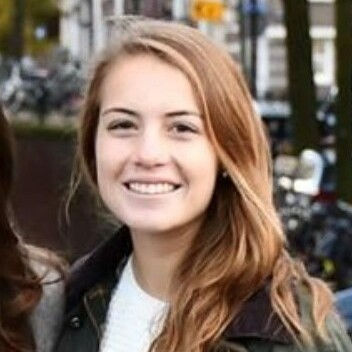 Korinna Garfield Korinna Garfield
Korinna Garfield Korinna Garfield
Korinna Garfield
Graduate Student
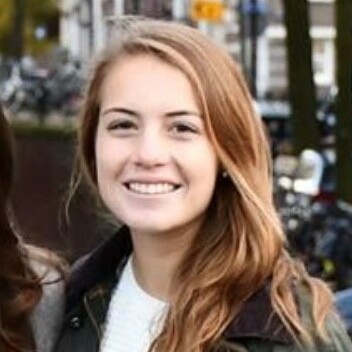
I am particularly excited about the negotiations regarding the implementation of the methane pledge and the strategies that countries will embrace to meet their ambitious goals for methane reduction.
Hometown: Wellesley, Massachusetts
School: Boston College Law School
Field of Study: Juris Doctor (JD)
Graduation Year: 2025
Why did you get involved in COP 29?:
As an aspiring environmental lawyer, I have wanted to attend COP for many years to deepen my understanding of international environmental law negotiations and enforcement.
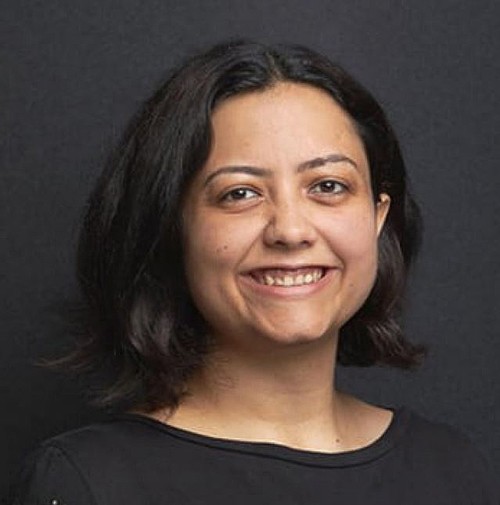 Avneet Hira Avneet Hira
Avneet Hira Avneet Hira
Avneet Hira
Associate Professor
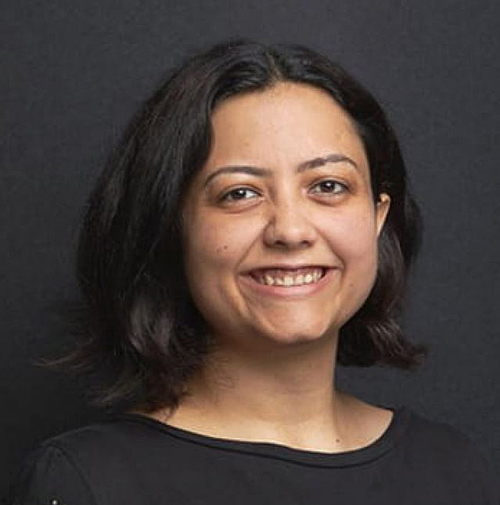
I am excited about and looking forward to finding ways to communicate our experiences with the BC community upon our return in ways that resonate with them and potentially create related movements on campus.
In all the courses I teach, whether design or analysis-focused, I discuss climate change and the role of engineers and technology in climate adaptation. The experience will help me have more authentic and current discussions with students while focusing on the sociopolitical considerations of such work.
Hometown: Waltham, Massachusetts
School: Morrissey College of Arts and Sciences
Field of Study: Engineering, Teaching, Curriculum & Society (by courtesy)
Why did you get involved in COP 29?:
My research is in informal STEM education; I work with communities on locally relevant problems using STEM knowledge and skills in informal educational settings like museums, community centers, and afterschool clubs. These locally relevant problems are often related to the impacts of climate change and associated resource conflicts.
Attending COP will help me connect policy-level discussions with my community-centered work aimed at developing knowledge and skills for a sustainable future.
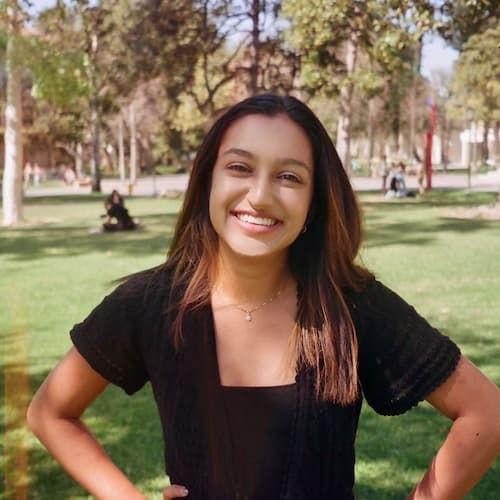 Sangeeta Kishore Sangeeta Kishore
Sangeeta Kishore Sangeeta Kishore
Sangeeta Kishore
Graduate Student
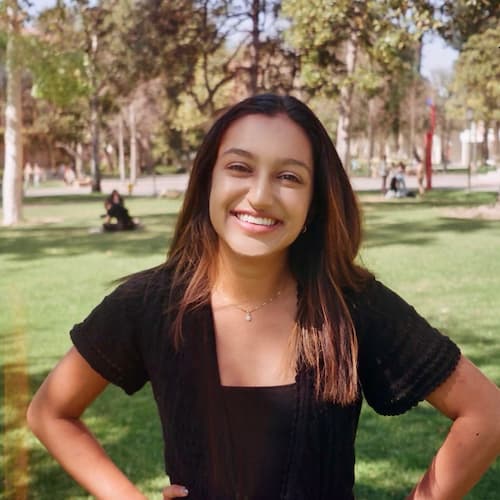
COP is more than just a political process — it is a convening space for all key stakeholders in global climate action. I’m excited just to take in the sheer size and scope of the conference and better envision my role in this field. The BC cohort is so diverse in our academic and professional interests, so I’m curious to hear their reflections throughout this experience.
Hometown: Princeton, New Jersey
School: Law School
Field of Study: Law
Graduation Year: 2026
Why did you get involved in COP 29?:
As an undergrad, I interned in USAID’s Power Africa office, which truly changed my life. I became passionate about just energy transition, and wanted to get more involved in this work. I decided to go to law school to study the legal side of sustainable development and eventually pursue a career in ESG regulation. Attending COP is an invaluable opportunity to see these negotiations in action. I was particularly interested in attending COP 29, given last year’s global stocktake and the projected emphasis on climate finance and carbon markets.
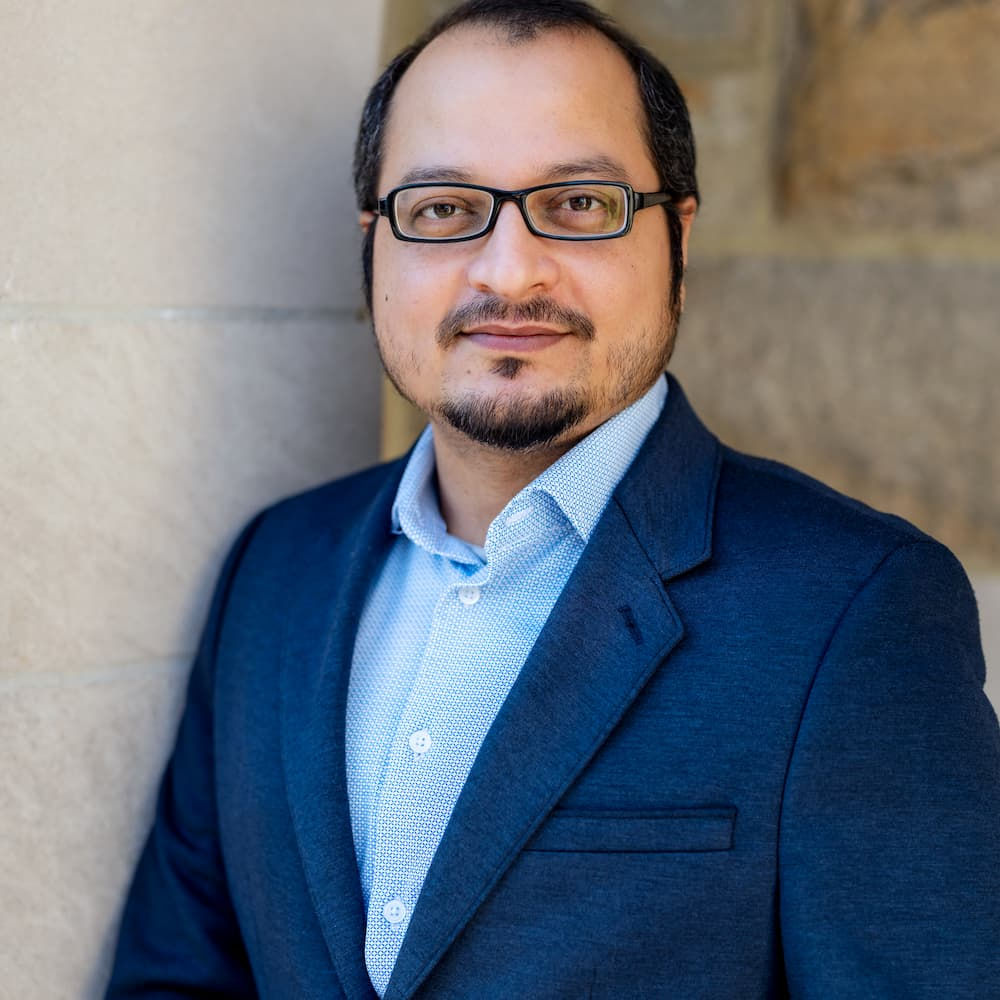 Praveen Kumar Praveen Kumar
Praveen Kumar Praveen Kumar
Praveen Kumar
Associate Professor
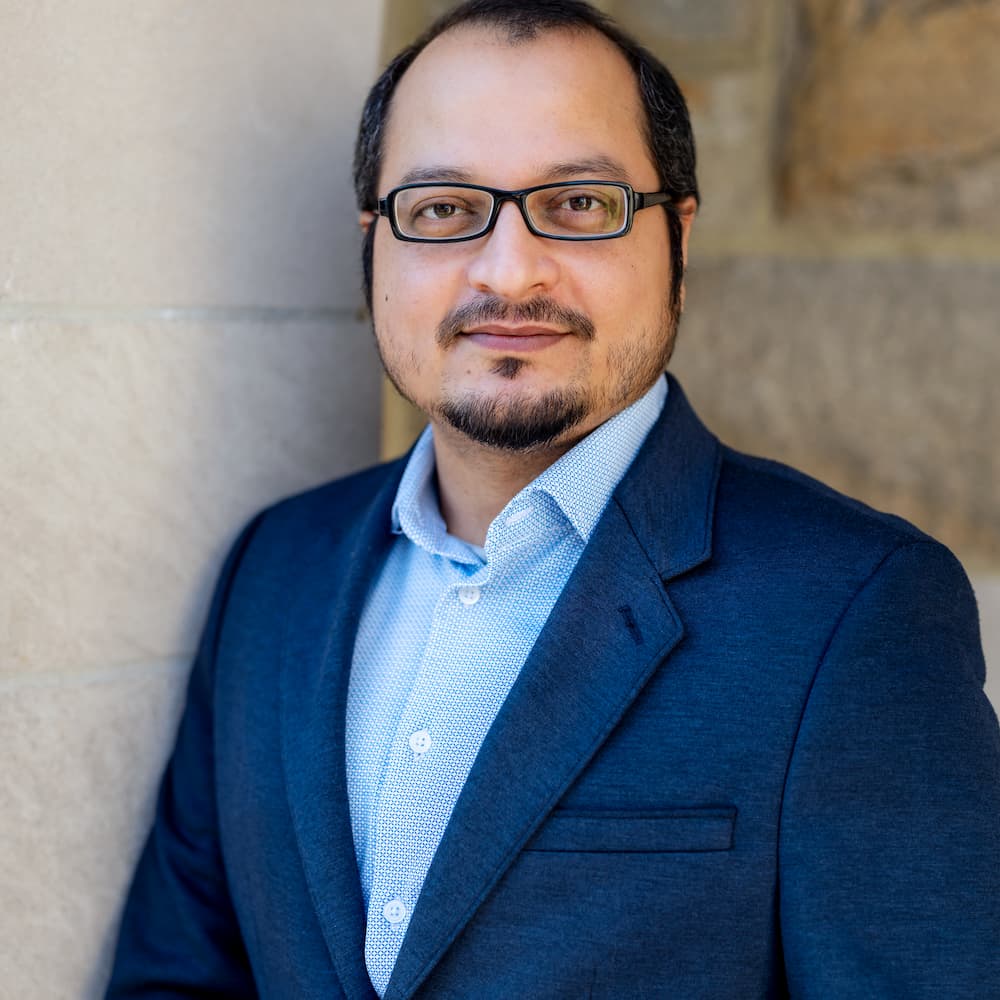
It looks like three issues hold the centerpiece in the COP29 - climate finance, just transition, and health. I am most excited to meet with civil society actors and private enterprises who are working in the space of climate finance.
Hometown: Bettiah, India
School: School of Social Work
Field of Study: Human dimensions of climate and environment
Why did you get involved in COP 29?:
The COP meetings enable me to engage with non-profits, businesses, international organizations, and local communities from around the world in a proportion I could never do at a typical academic conference! Moreover, climate politics change rapidly. Every year, new issues are the centerpiece of the climate negotiations. For instance, the Baku COP is largely considered a climate finance COP. Attending COP meetings ensures that I am exposed to emergent critical issues, which in turn shape my research along with my teaching.
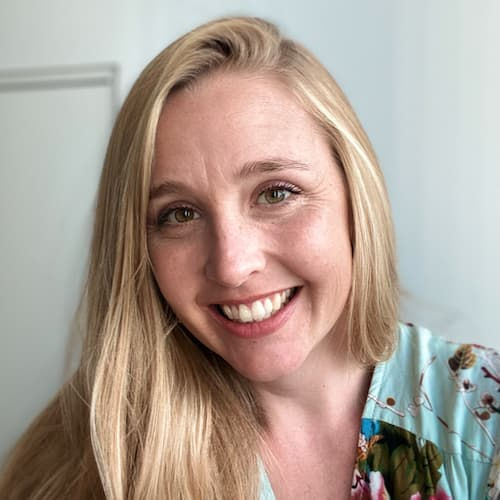 Kaley McCarty Kaley McCarty
Kaley McCarty Kaley McCarty
Kaley McCarty
Assistant Director, Programs
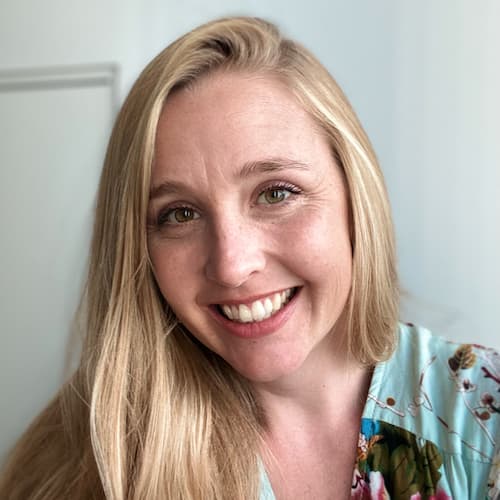
I'm excited to support our delegates and help give them the incredible opportunity to engage with climate change issues on an international stage. Having the ability to connect with, and learn from, people from all over the world who are working on this pressing global issue promises to be an eye-opening, transformative experience for us all. I am also passionate about the power of stories and narratives in inspiring climate action and look forward to experiencing how discourse plays out on the ground at COP29.
Hometown: Huntington Beach, California (though the PNW is also home after spending my 20s in Eugene, Oregon)
Field of Study: The Schiller Institute for Integrated Science and Society
Why did you get involved in COP 29?:
In my role as Assistant Director, Programs at the Schiller Institute, I have the pleasure of managing BC's COP programming as an observer organization to the UNFCCC. When I applied to this position winter of 2024, seeing that the position would be deeply involved in COP was one of the major draws, given that I've been passionate about climate change since I first learned about it freshman year of high school in Model United Nations and I've studied environmental studies and environmental sociology throughout my academic career.
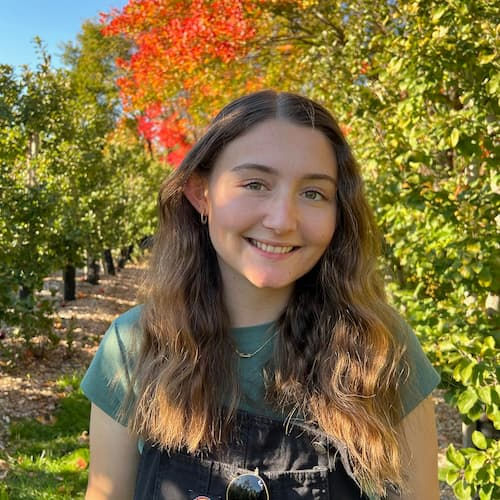 Carly Morris Carly Morris
Carly Morris Carly Morris
Carly Morris
Graduate Student
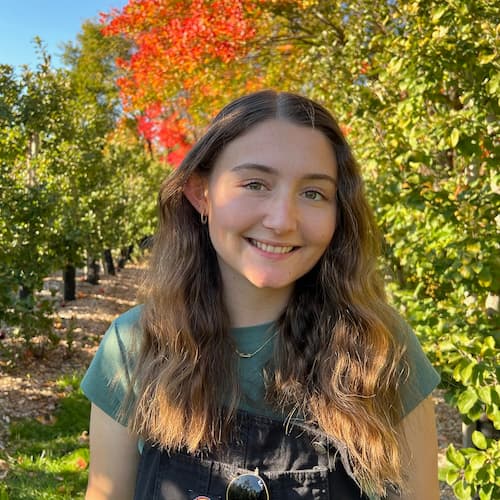
I'm most excited about engaging with diverse voices and perspectives from around the world at COP 29. Seeing how different nations approach climate issues, particularly in terms of environmental justice and equity, will be incredibly meaningful. I'm especially looking forward to discussions around adaptation efforts and loss and damage financing. Observing how nations negotiate these critical topics will provide unique insight into the real-time decision-making needed to support vulnerable communities. It’s inspiring to see how legal frameworks and financing mechanisms can address both immediate and long-term impacts, bridging gaps between environmental goals and social justice. Being part of these conversations will deepen my understanding of the challenges and solutions that drive global climate policy.
Hometown: Brooklyn, New York
School: Boston College Law School
Field of Study: Law
Graduation Year: 2026
Why did you get involved in COP 29?:
As an environmental studies student in college, I became aware of COP and its role in shaping global climate policy. Now in law school, my commitment to the intersection of environmental justice, equity, and law has only strengthened, and COP 29 offers an invaluable opportunity to explore how legal frameworks can support sustainable and equitable climate solutions. Being involved allows me to leverage my legal education to understand and address critical environmental challenges on an international scale, making a tangible impact in the areas I'm most passionate about.
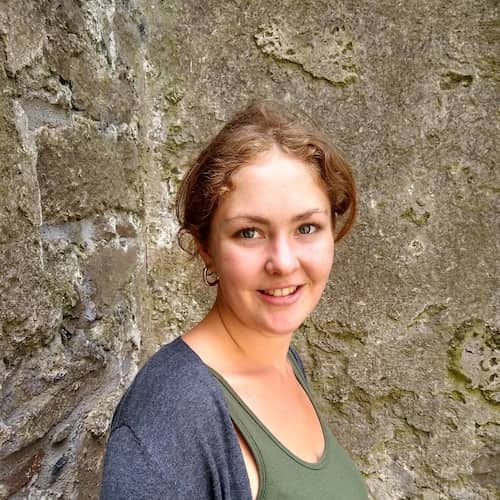 Michaila Peters Michaila Peters
Michaila Peters Michaila Peters
Michaila Peters
Graduate Student
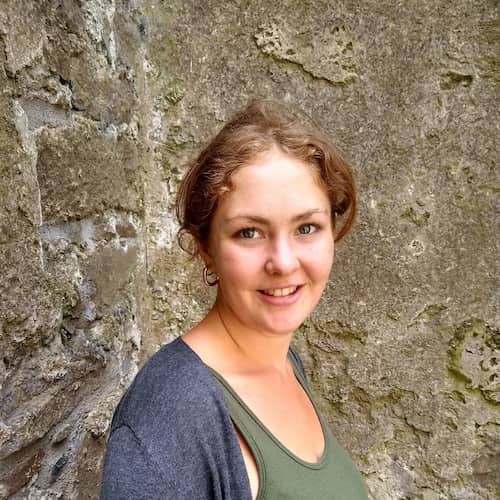
I am excited to meet with the Local Peoples and Indigenous Leaders Platform to explore the impact rural and indigenous community wisdom is currently able to have on UN Climate Negotiations, and discern how these voices and knowledges could be further lifted in support of imagining climate justice.
Hometown: Cambridge Springs, Pennsylvania
School: Morrissey College of Arts and Sciences
Field of Study: Philosophy PhD
Graduation Year: 2026
Why did you get involved in COP 29?:
My philosophical research adopts a feminist lens to better understand the relationship between rural poverty and political extremism. What drives attitudes like climate denial in rural areas? How has rural poverty been shaped by climate injustices, as communities were made dependent on fossil-fuel and other extractive industries, and not given sufficient resources to transition to new, just economies? How does extractive exploitation persist in entrepreneurial, rather than genuinely sustainable "green" investments? How can we re-center marginalized rural and indigenous perspectives, such as Black rural and indigenous eco-feminisms, that can help us to imagine genuine rural climate justice? Attending COP29, I hope to understand how climate negotiations currently consider these voices, and in doing so, consider how we can amplify them more. I also hope to learn from the existing local representatives' perspectives on how to imagine and achieve climate justice.
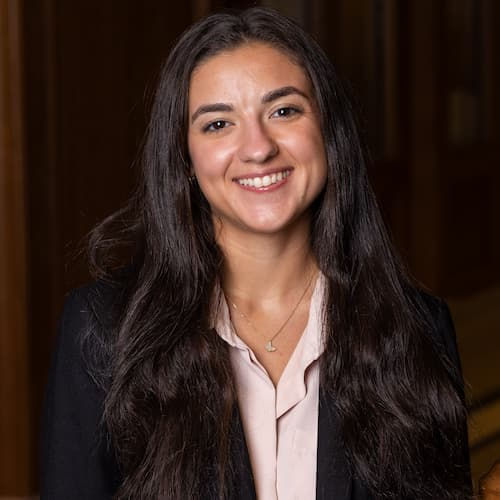 Liz Schwab Liz Schwab
Liz Schwab Liz Schwab
Liz Schwab
Undergraduate Student
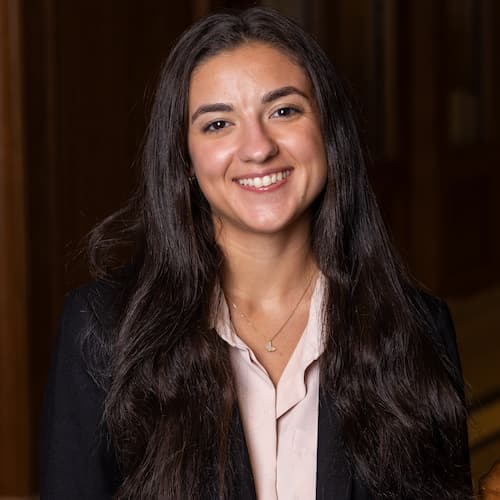
I am excited to engage in discussions on the implementation of the Paris Agreement and the establishment of the Loss and Damage Fund, which is vital for supporting the nations hardest hit by climate change. I plan to add these insights to my senior thesis, which explores how presidents have framed climate agreements in their speeches. Additionally, I look forward to using my blue badge to access live negotiation rooms and observe the dynamic interactions among delegates. This firsthand experience will deepen my understanding of the complexities of international negotiations. Overall, I see COP 29 as a crucial opportunity to spark action and build partnerships that prioritize climate justice and human rights.
Hometown: Long Island, New York
School: Morrissey College of Arts and Sciences
Field of Study: International Studies; Communication
Graduation Year: 2025
Why did you get involved in COP 29?:
My involvement in COP 29 stems from a deep commitment to addressing the intertwined crises of climate change and human rights. As a senior studying International Studies with a focus on environmental policy, I am acutely aware that vulnerable communities often bear the brunt of climate impacts despite contributing the least to the problem. During my internship at the United Nations Human Rights Office, I recognized the critical need for integrating human rights considerations into climate action. This realization compelled me to participate in COP 29, where I aim to advocate for inclusive policies that prioritize equity and justice.
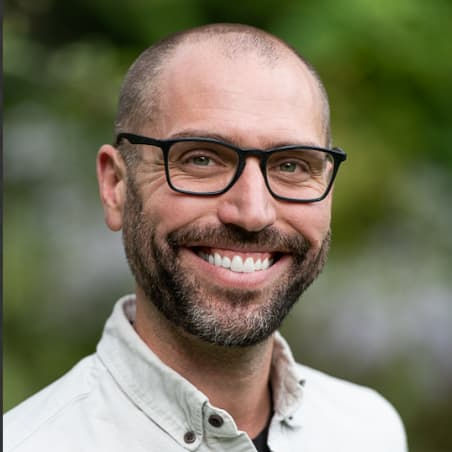 Jesse Swann-Quinn Jesse Swann-Quinn
Jesse Swann-Quinn Jesse Swann-Quinn
Jesse Swann-Quinn
Associate Professor
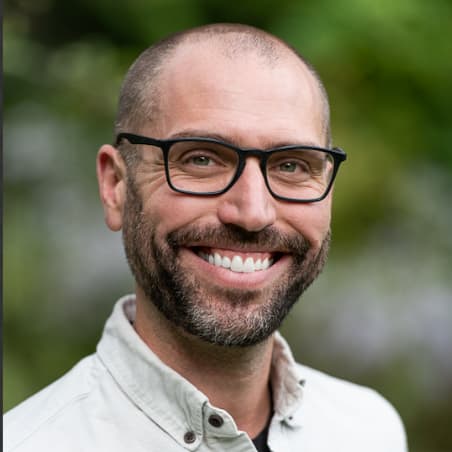
Though I have worked in the South Caucasus for more than a decade, I have never visited Baku. I am so excited for the opportunity to begin experiencing the city in the context of COP29, and to follow the climate finance negotiations as they unfold (while also eating some delicious plov!).
Hometown: Roslindale, Massachusetts
School: Morrissey College of Arts and Sciences
Field of Study: Environmental Studies
Why did you get involved in COP 29?:
My scholarship primarily focuses on global networks of resource extraction, a primary driver of climate change, especially in the South Caucasus. The geographies of energy and finance in this region offer a particularly compelling landscape for COP29 to unfold within, and I look forward to following the discourse about global climate finance in the context of the region's current moment.
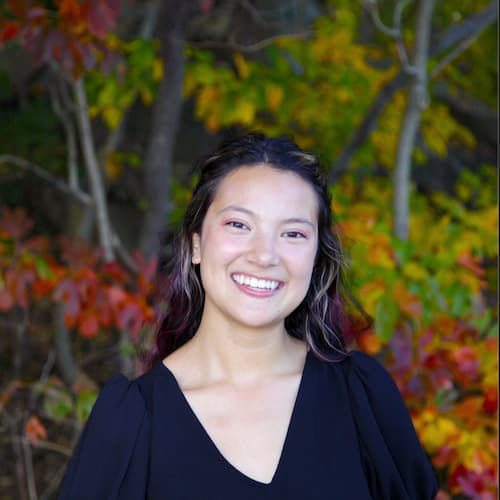 Lyann Tam Lyann Tam
Lyann Tam Lyann Tam
Lyann Tam
Undergraduate Student
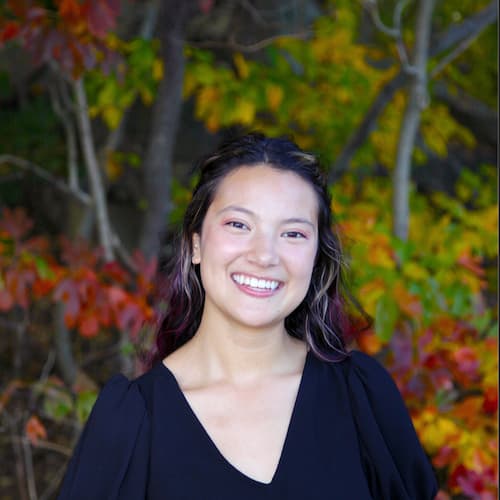
What excites me most about attending COP29 is being at the heart of global climate negotiations, where decisions that will shape our collective future are made. I’m eager to witness firsthand how these discussions play out—the successes, the inevitable challenges, and even the shortcomings of a global conference trying to tackle something as complex as climate change. Seeing these dynamics in real time will give me a better understanding of the victories and obstacles, and how I can position myself to contribute meaningfully to these efforts moving forward.
I am also excited about the chance to listen the stories, perspectives, and solutions offered by groups such as Global South nations and Indigenous communities, who are often left out of the mainstream dialogue, even though they are among the most affected by the climate crisis. By hearing directly from them, I hope to learn about new frameworks and paradigms in which we can approach climate change that are more based in equity and justice.
I’m also incredibly excited to connect with other youth at COP29. My generation has been at the forefront of climate action, and I’m constantly inspired by the drive, creativity, and resilience of young people around the world. At COP29, I look forward to being part of a network of youth who are passionate about creating a just and sustainable future.
Hometown: Libertyville, Illinois
School: Connell School of Nursing
Field of Study: Global Public Health Major, Studio Art Minor
Graduation Year: 2025
Why did you get involved in COP 29?:
I wanted to participate in COP29 because as a student in public health I have come to realize climate change is not only an environmental issue—it is a profound public health crisis, with far-reaching impacts especially on marginalized communities. I wanted the opportunity to immerse myself in the processes that shape global governance. Understanding how nations negotiate and make decisions at the highest levels is crucial for my future work in global health, where climate and health intersect in powerful ways.
Growing up in a generation deeply concerned with the political and environmental crises we face, I've been inspired by my peers who are taking bold steps toward change. However, I’ve also been frustrated by the inaction of global leaders in addressing these urgent challenges. This tension between urgency and stagnation fuels my desire to better understand the mechanisms of international policy and to see how we, as youth, can push for stronger, more equitable climate policies.
My academic and professional interests—including immigrant and refugee health, mental health, and climate health—are directly influenced by global policies discussed at COP. Whether through my work with migrant farm workers affected by climate change or researching the mental health impacts of climate-induced displacement, I’ve seen how intimately climate issues are tied to public health. Attending COP29 gives me the chance to learn from diverse voices, see negotiations in action, and join a network of like-minded youth working toward climate justice.
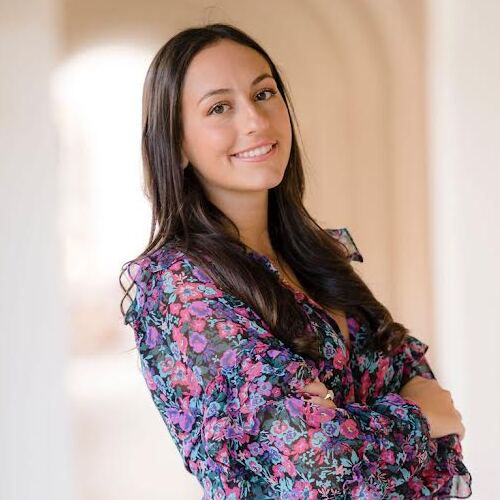 Emma Villegas Emma Villegas
Emma Villegas Emma Villegas
Emma Villegas
Undergraduate Student
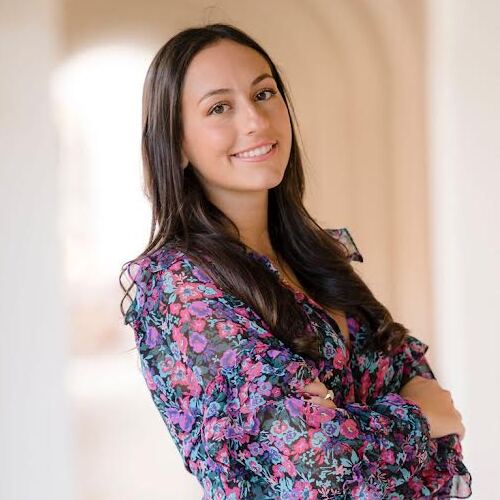
I am most excited to get involved in the youth activism programs. COP29 will be having the first-ever Human Development Day which will take a holistic view of climate change that treats human development, youth, health and education as inter-related issues to be supported. In addition, initiatives like YOUNGO and Early Career Researchers at COP will be great places to connect with other delegates my age and share conducive discussion on the many issues that we seek to address.
Hometown: Miami, Florida
School: Morrissey College of Arts and Sciences
Field of Study: Double Major in International Studies and Environmental Studies
Graduation Year: 2025
Why did you get involved in COP 29?:
I got involved because as a double major in International Studies and Environmental Studies, my interest is understanding the use of diplomacy and international institutions in addressing climate change. Climate change is ultimately an issue of national and international security because it affects everyone at once on all scales. Therefore, international cooperation is essential to combat the issue. This being said, the COP conferences are the exact intersections of my majors and a perfect example of diplomacy in action.